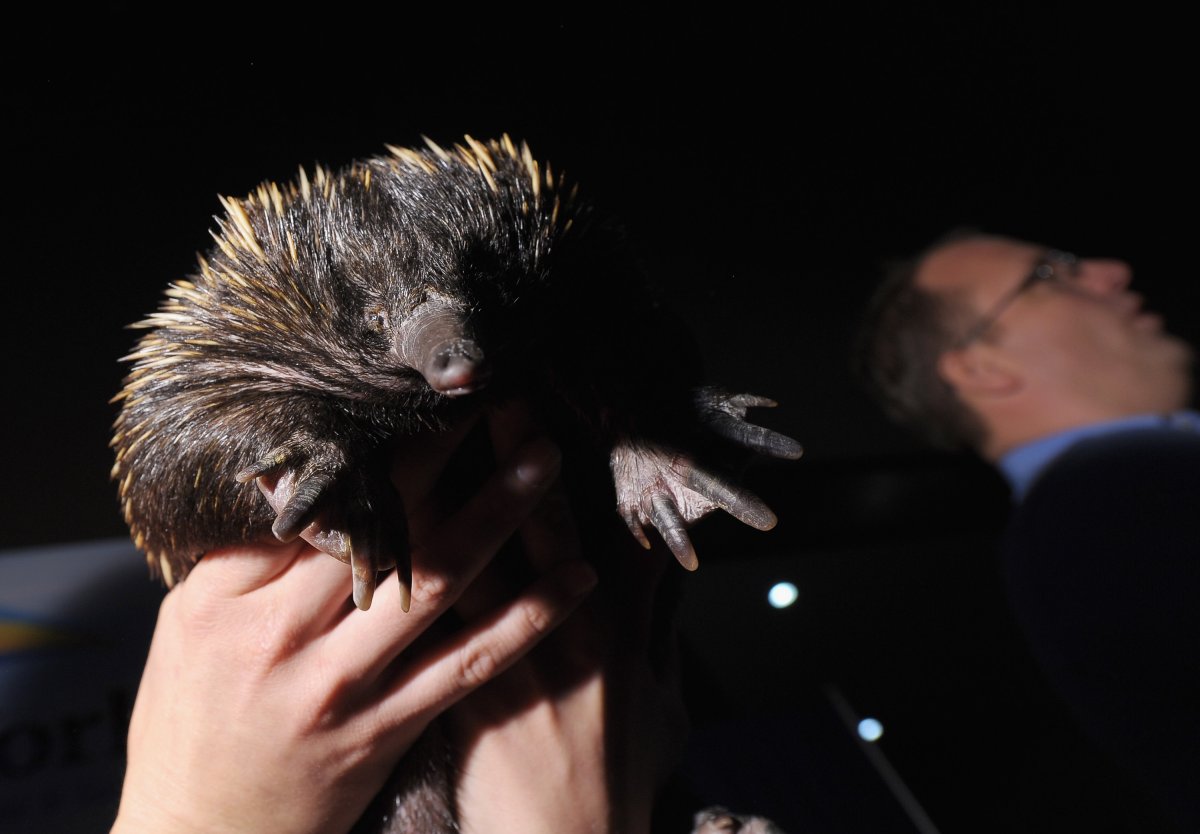A scientific expedition on the island of New Guinea, led by Oxford University researchers, proved fruitful as the first-ever photographic evidence of the Attenborough's long-beaked echidna was collected.
The echidna, named after David Attenborough, was thought to be extinct, as the only evidence of the mammal that existed was a decades-old "museum specimen of a dead animal," according to the BBC.
The summer expedition to the Cyclops Mountains of Indonesian New Guinea was led by James Kempton. "We collected thousands of invertebrate specimens and nearly a hundred frogs and reptiles," he said.
The expedition team also discovered two species of frog new to science, dozens of new insect species and even new genera, Kempton said.

Video of the Attenborough's long-beaked echidna was remotely captured by trail cameras. "This footage proves that this extraordinary egg-laying mammal survives in the Cyclops Mountains, the only place it has ever been seen. It is critical that we now act to conserve the echidna and its threatened mountain home," the expedition's website says.
https://t.co/ndLhVnnIhT Congratulations to Dr James Kempton, leading Expedition Cyclops and rediscovering a species not seen by science for over 60 years: Attenborough's long-beaked echidna.
— Merton College, Oxford (@MertonCollege) November 10, 2023
The expedition's researchers placed 80 cameras and climbed more than 11,000 meters, According to Oxford's Department of Biology. The cameras captured both photographs and videos of the Attenborough's long-beaked echidna. The researchers also discovered on the last day of their expedition, on the last images of their final memory card, that they spotted the echidna.
Oxford Biology also took to X (formerly Twitter) to celebrate the discovery on Friday writing, "The team battled leeches, malaria, and >11,000m of climbing in the Cyclops Mountains to capture the first ever images of the species."
Newsweek has reached out to the expedition team via an online portal for additional comment.
Meanwhile, Kempton said that during the expedition the team made a "great surprise" discovery of a new genus of terrestrial shrimp. Kempton quipped, "So moist is it in the Cyclops Mountains."
The long-term goal of the expedition is to build a case for increased protection of the Cyclops Mountains, Kempton said.
"With 83 percent of Indonesian New Guinea's old-growth forest still intact, we are at a critical moment to ensure the preservation of the world's most biodiverse island," he said.
He added that in his future work he aims to extend his research "across all of Indonesian New Guinea."
In an article on the university's website, Leonidas-Romanos Davranoglou, lead entomologist for the expedition, wrote: "Tropical rainforests are among the most important and most threatened terrestrial ecosystems. It is our duty to support our colleagues on the frontline through exchanging knowledge, skills, and equipment."
Uncommon Knowledge
Newsweek is committed to challenging conventional wisdom and finding connections in the search for common ground.
Newsweek is committed to challenging conventional wisdom and finding connections in the search for common ground.
About the writer
Anna Commander is a Newsweek Editor and writer based in Florida. Her focus is reporting on crime, weather and breaking ... Read more





